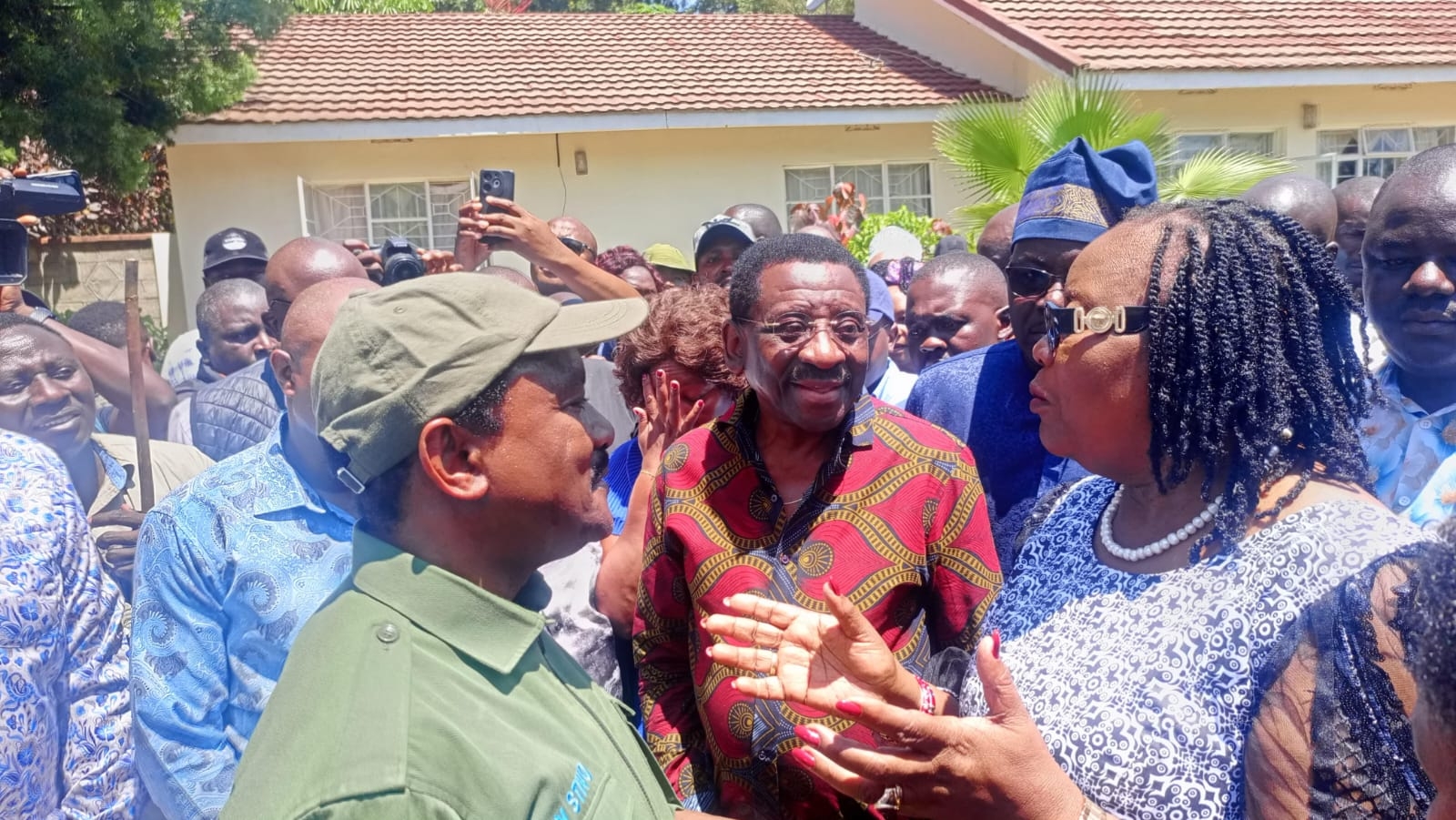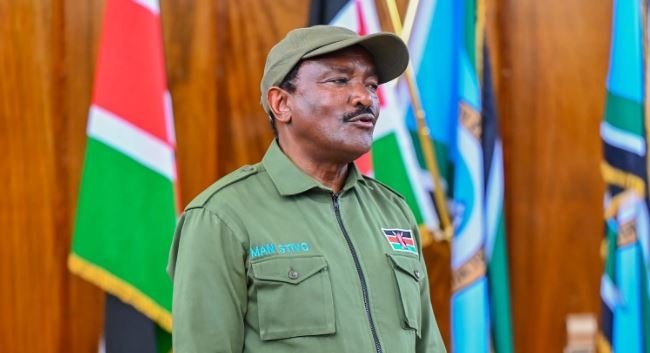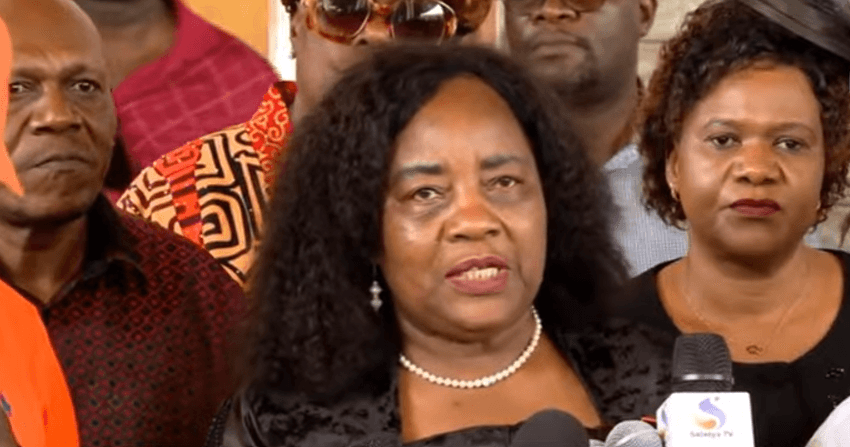
Mother’s Day. It was a day draped in the kind of silence that precedes revelation, the kind that hums softly beneath the skin, like distant thunder rolling behind a placid sky. The sun rose gently over Nairobi, filtering through gauzy curtains in thin golden ribbons.
Outside, a few birds began their morning aria, while the Thika Superhighway nearby, like a groggy giant, stirred slowly to life.
Inside my modest living room, its furniture carefully selected for durability rather than luxury, my 75-year-old mother and I sat, our breaths in quiet synchrony. The tick of the wall clock punctuated the air, a metronome to our silence. It was Sunday. The kind of Sunday that pretends to be peaceful, only to unveil some ancient unrest cloaked in the vestments of memory.
She wore her favourite diira, a faded maroon fabric with faded floral embroidery from another time, another place. Her headscarf, wrapped with practised elegance, was the colour of winter twilight. She looked like a portrait: framed by decades, stoicism etched into the delicate creases around her mouth, her right eye glimmering with unspoken tales. The left one had grown dim years ago, a cruel souvenir from a bout of untreated trachoma. But that right eye, it missed nothing. Especially not pain.
I had made her tea. Not just any tea, proper nduvia chai with cardamom pods, ginger slivers and a touch of milk froth, boiled with reverence in my ancient aluminium sufuria. As the tea brewed, the scent curled through the house like a prayer, calling forth comfort, familiarity and, perhaps, ghosts.
That’s when she spoke.
Her voice was soft. Not frail, not cracked, no; it was low and ironclad, like a key turning in a long-locked door.
“One day, when you were a newborn,” she said, eyes fixed on the framed black-and-white photograph above the fireplace, “I woke up and decided it was the day I was leaving for good. Makokha son of Makokha son of Makokha son of Makokha son of Kasembeli, your father.”
I froze. The spoon slipped from my hand, landed with a clink against the porcelain saucer. My gaze followed hers. There it was: the photo.
The year was 1969. My parents, young and brazen, locked in a moment of rebellious happiness. Her shoulders squared, his grin rakish and confident. It was their wedding portrait, the one that hung in every household of their nine children. The myth. The flame.
And suddenly, she had tossed a stone through the stained glass.
“I’m glad I didn’t,” she whispered next. A near inaudible thread of sound. But it reached me. Oh, how it reached me.
Then she turned her head, and our eyes met. For the briefest moment, the world paused. Her single seeing eye, glossy now with a tear, held me captive. It shimmered, not just with water but with a tide of history too vast for language. A language of grief, resignation and above all, endurance.
I dared not blink.
We had believed their marriage to be invincible, legendary. A union that defied ethnicity and tradition. A Kikuyu woman from the slopes of Kirinyaga, dancing through destiny flames to bind herself to a Bukusu man of Mount Elgon. It was our childhood anthem. Love knows no tribe, no hill too steep. Yet, here she was, cracking the very foundations of our lore with the quiet admission of a fracture we never saw.
She went on, her voice a measured river.
“That year, your father and I were to mark 10 years together. He had decided, without so much as a quarrel, that it was time to marry again. His people, your people, believe a man grows his strength in wives. He came home one evening with a goat for bride price negotiations, and I—”
She stopped. Her throat moved.
“I had three choices: fight, flee or stay. I packed. I even breastfed you for the last time in my mind. But something, some ghost, some whisper, held my ankles down. It said, ‘If you go, they will die. All of them. One by one, swallowed by the jealousy of another woman’s womb.’ And I knew it. It is not legend. It is law among women: cowives do not always share. Some erase.”
The air grew heavy. I felt it in my spine. The tea had gone cold. I had not moved. Not breathed. I wanted to scream, to rage at my father for his betrayal, to rage at the patriarchy that dressed injustice in custom and handed it down like heirloom poison. But I could not. I was her son. And sons do not weep before their mothers. They listen. They remember.
She glanced at my bookshelf — my fortress of diplomas, philosophies, postcolonial critiques, volumes of Achebe, Ngugi, Zukiswa and Soyinka — and said:
“All these books. Had I left, none of them would belong to you.”
It was then that I rose, barefoot, on the old parquet floor, the polish cool against my soles. I crossed the small space and sat on the armrest of her chair. I placed my arm, slowly, reverently, over her shoulder. Her body leaned into mine. Fragile, birdlike. A thing that had weathered typhoons.
“Thank you, Mama,” I whispered. “For not walking away. For bleeding in silence. For protecting us with your stillness.”
And then, she broke. The dam burst. Her sobs were soft, almost inaudible, but they carried the weight of wars untold. Her shoulders trembled beneath my arm, and I held her tighter, as though to knit her brokenness back into bone.
That was last year.
Since that day, I have sworn an oath. If ever a man strikes a mother, if ever a woman is reduced to ash beneath the weight of a man’s ego, I will not hesitate to trade my scholar’s robes for Kamiti’s infamous stripes. I will sit behind bars smiling. Because some people are not merely people. They are time itself. They are wombs through which nations pass.
This Mother’s Day, I do not write her a card. I do not buy flowers. I remember that day. I offer silence. I offer gratitude laced with sorrow. I honour her, not for perfection but for grit. For hiding her bleeding heart behind lullabies. For feeding us dreams, while swallowing hers.
There are mothers, and then there are women like mine. Women who choose to stand still when every bone cries run. Who stay not out of weakness but as a final act of defiance. Who raise empires out of cracked soil and call it home.

















